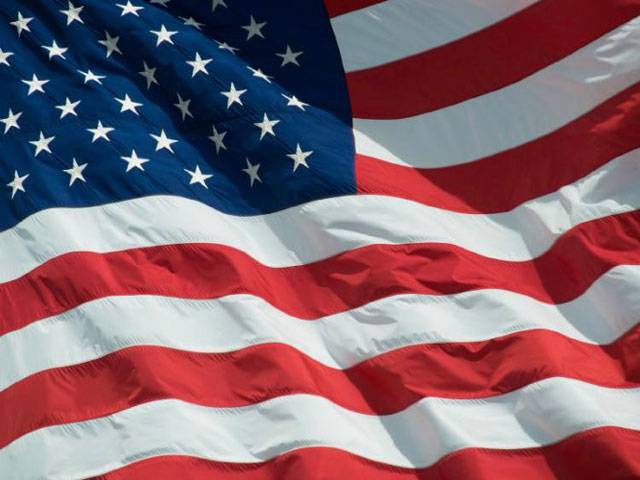WASHINGTON - The United States wants Pakistan to move quickly to show good faith in supporting efforts to counter militants operating in Afghanistan and in bringing the Taliban to the negotiating table, a senior US diplomat for South Asia Alice Wells said on Friday.
Speaking after accompanying US Secretary of State Rex Tillerson on a visit to the region, including Pakistan, Wells said Washington looked forward to seeing practical steps from Pakistan “over the next few weeks and months.”
“The secretary stressed the importance of Pakistan moving quickly to demonstrate good faith and efforts to use its influence to create the conditions that will get the Taliban to the negotiating table,” Wells, the acting assistant secretary of state for South Asia, told reporters.
She said Washington wanted Pakistan to show the same commitment it had made to defeat militant groups domestically to those threatening Afghanistan or India.
“This is about Pakistan’s sovereign choice. This is not about America giving dictation. We’ve described our strategy, we’ve described a very important role for Pakistan, who we see as a very important country in the region, but it’s up to them whether or not they want to work with us on this strategy. And if they don’t, as the secretary said, we’ll adjust accordingly,” Wells said.
Wells went on to suggest that the Washington simply wants Islamabad to do what it has done in the past when it took a “strategic decision to defeat the terrorist groups that were targeting the government of Pakistan.”
“And with great loss of life, great courage, great vision about what needed to be done, Pakistan has fought that battle and now has regained control and sovereignty over the FATA territories,” Wells said. “We’d like to see the same strategic commitment brought against other militant groups, whether that are operating or have used Pakistan’s territory, whether they are directed against India or directed against Afghanistan.”
“It’s up to them whether or not they want to work with us,” Wells said. “And if they don’t … then we’ll adjust accordingly.”
Wells declined to elaborate on what action the United States might take or what specific actions it wanted Pakistan to take.
Relations between uneasy allies US and Pakistan have frayed in recent years, with Washington repeatedly accusing Islamabad of helping Afghan Taliban and Haqqani network militants who stage attacks in Afghanistan. Pakistan denies doing so.
US President Donald Trump has vowed to get tough with Pakistan unless it changed its behaviour, with US officials threatening further reductions in aid and mooting targeted sanctions against Pakistani officials.
On Monday, during a visit to Kabul, Tillerson urged Pakistan to act against safe havens on its soil. “Pakistan needs to, I think, take a clear-eyed view of the situation that they are confronted with in terms of the number of terrorist organisations that find safe haven inside of Pakistan,” he said.
Pakistani officials bristle at the idea that the country is not doing enough against militants and say it has suffered more than 60,000 casualties in the war on terror since the September 11 attacks in the US in 2001.
Tillerson, during his meetings with Pakistani leadership, had an extremely candid conversation with the prime minister and the civilian and military leadership team, Wells told the reporters.
The secretary underscored that the strategy is an opportunity; since Pakistan, with the exception of Afghanistan, has the most to benefit from a stable and peaceful country next door. He noted that at several critical junctures over the last 70 years, the US has worked very closely with Pakistan, and the Coleman hostage is an example of what they can do when together.
“But under the strategy, we’ve laid out some very specific expectations of how Pakistan can help create the conditions that will help bring the Taliban to the table.
“And I think the longstanding relationships with the militant and terrorist organisations our concern is that they threaten Pakistan s stability.
“You see already the spillover of the sectarianism that has been building in Pakistan over the last several decades,” Wells said.
According to Wells, over the last four years Pakistani officials and the Taliban both thought the US was withdrawing. “They were hedging against a chaotic departure. They were hedging against an uncertain security environment,” she said.
“What the South Asia strategy gives them, is certainty that we’re there, we’re not going to let the Taliban win, that we’re prepared to invest the resources that will be, at a minimum, a stalemate but a stalemate increasingly in the government’s favour,” she said.






